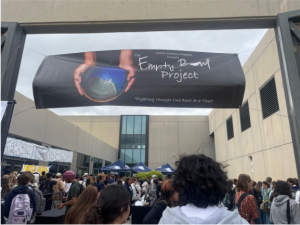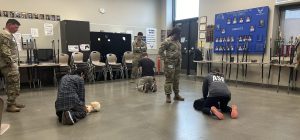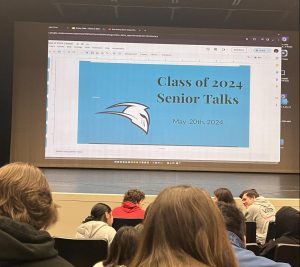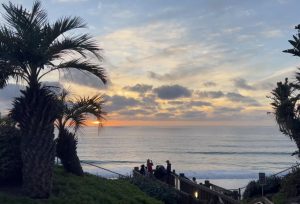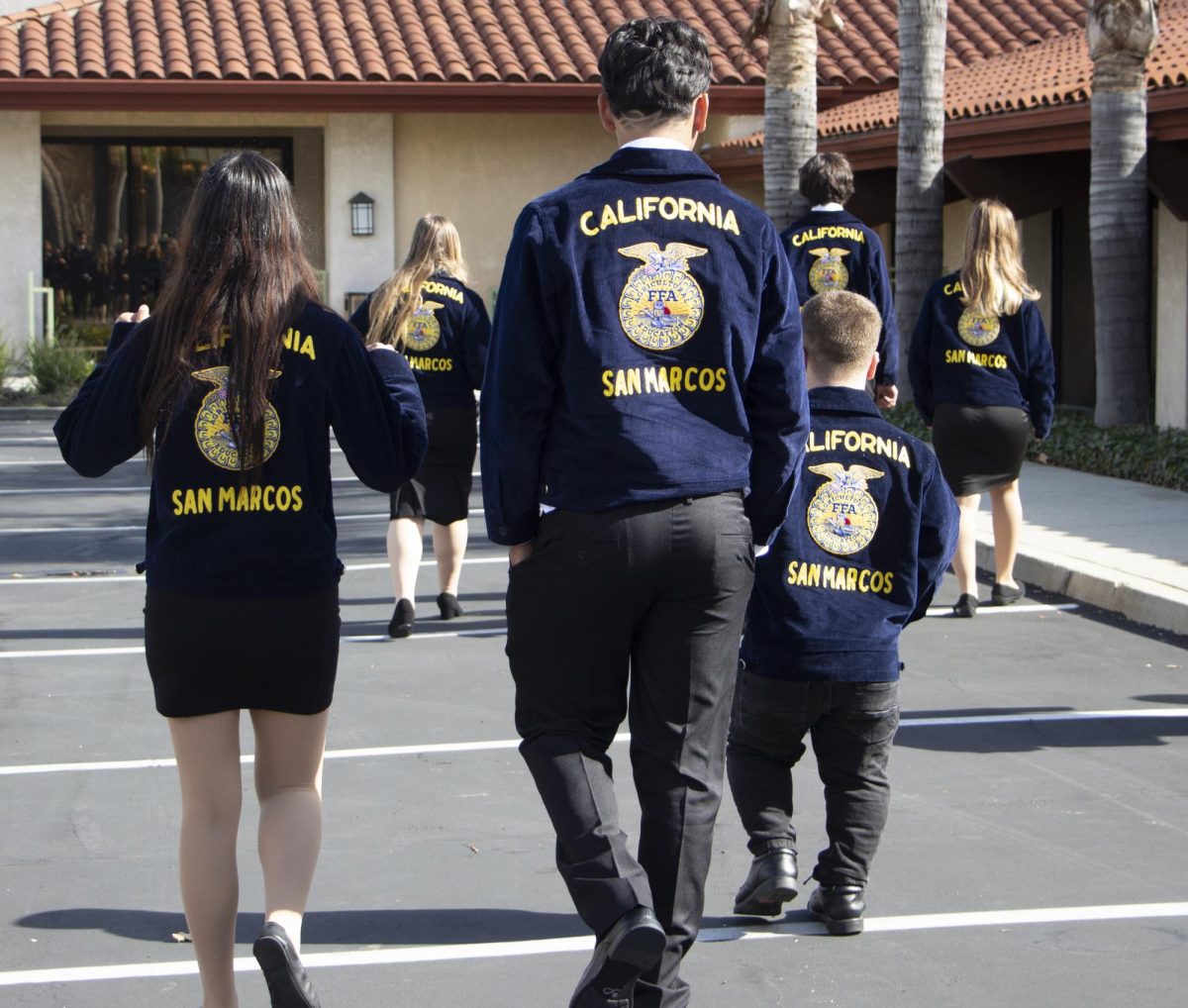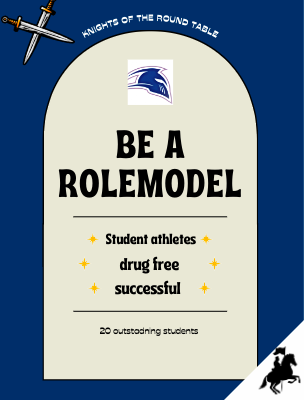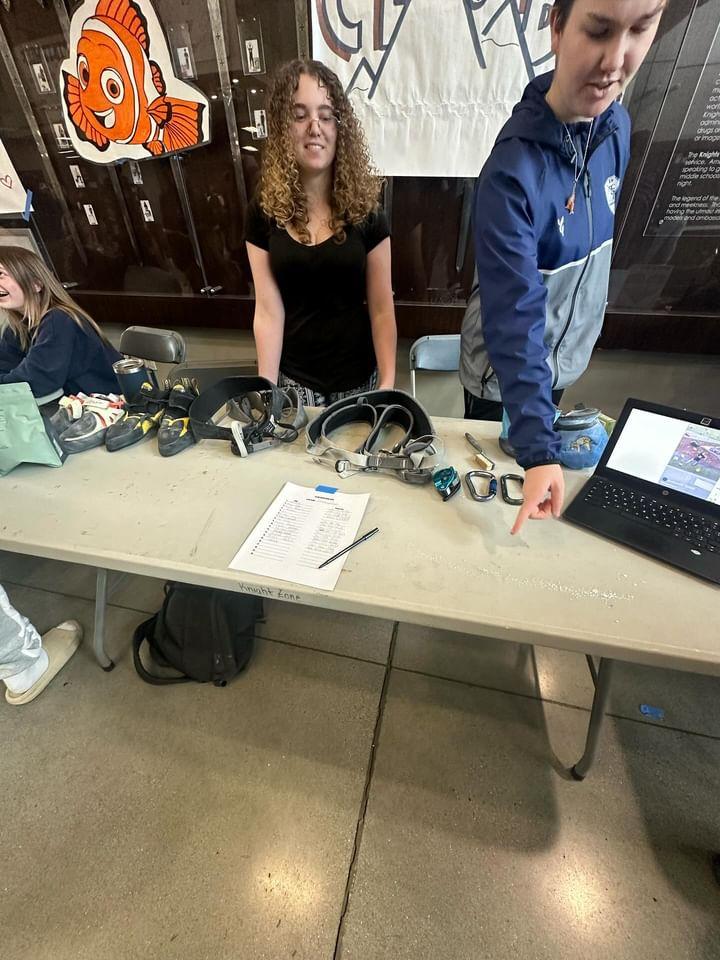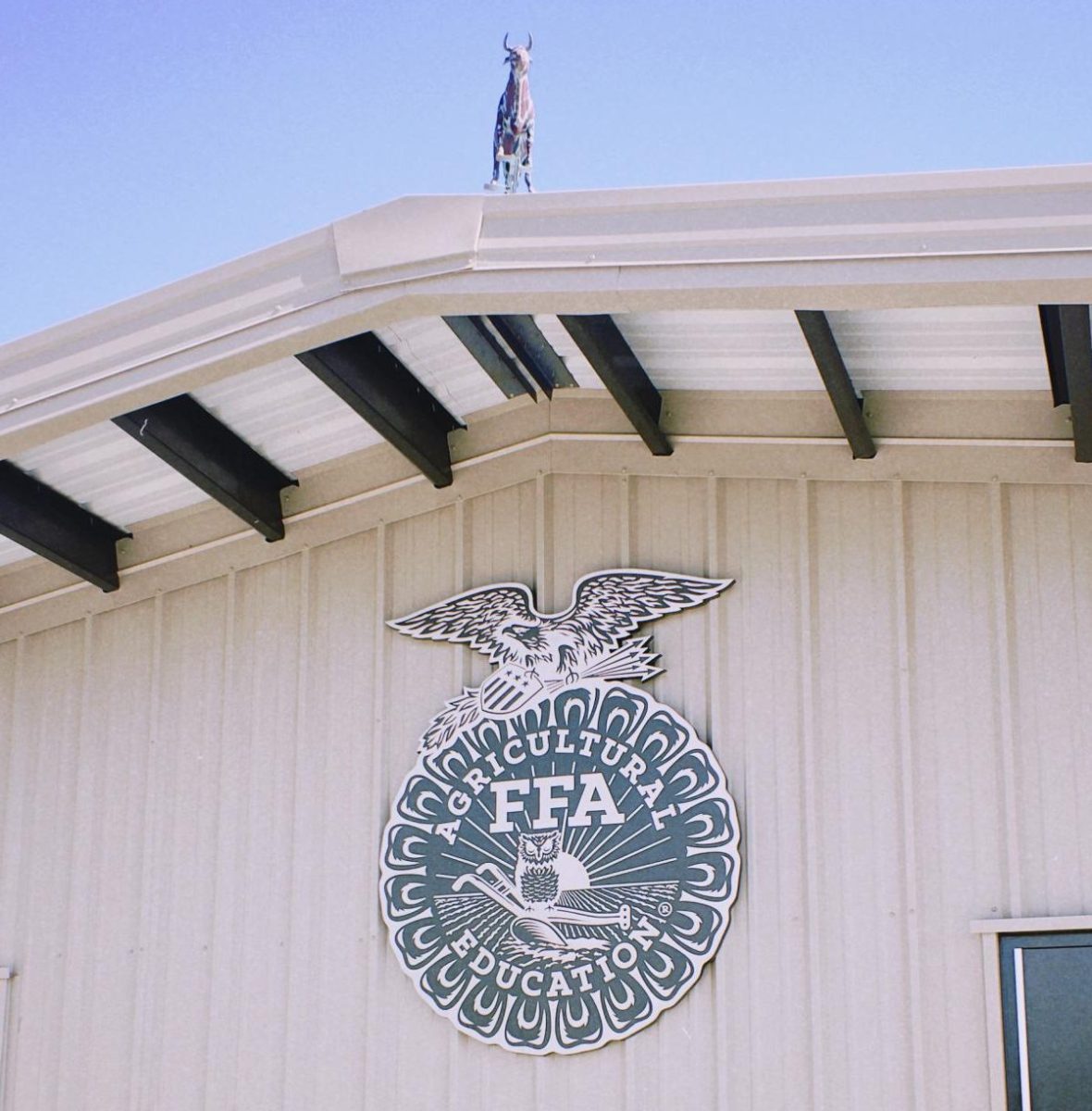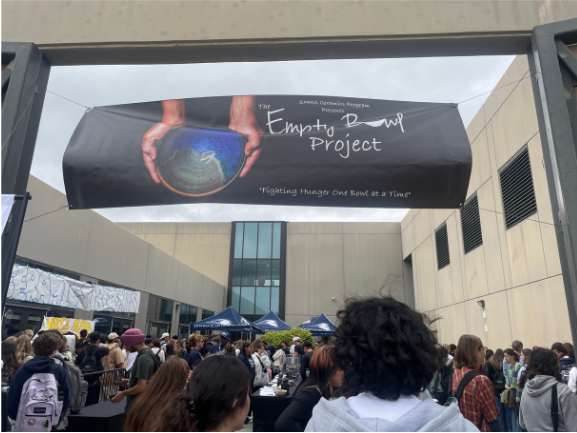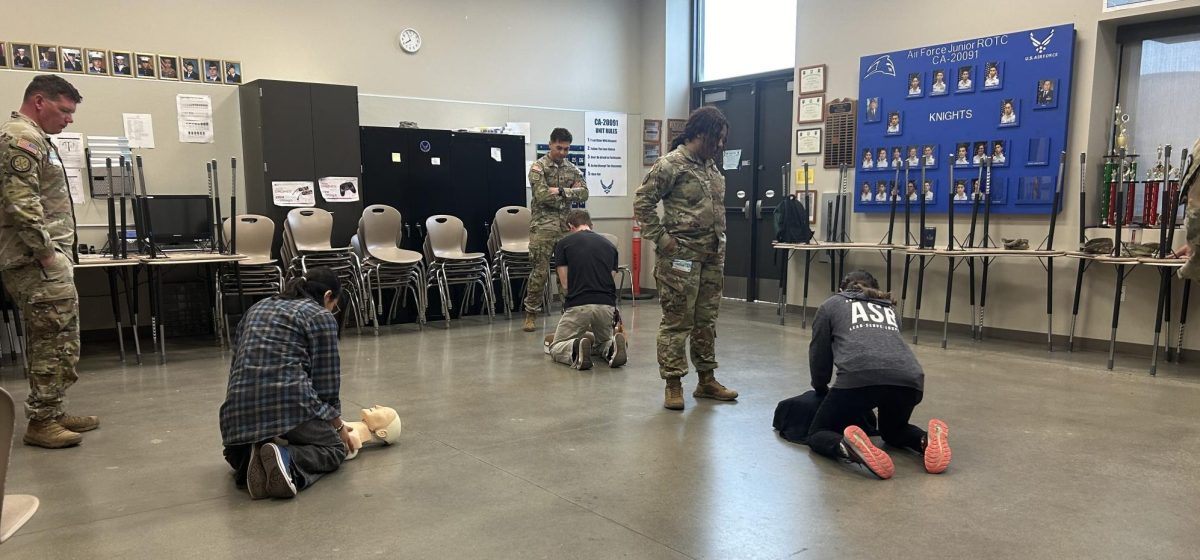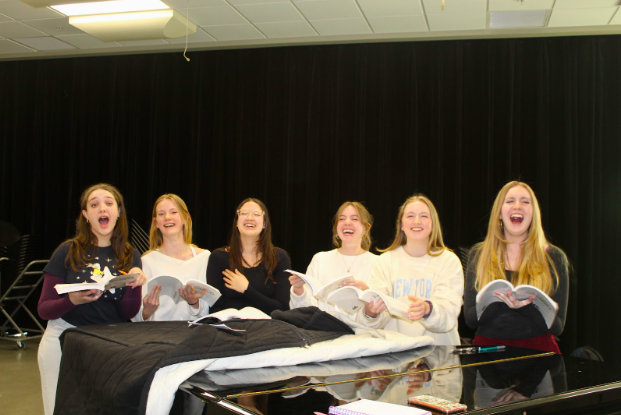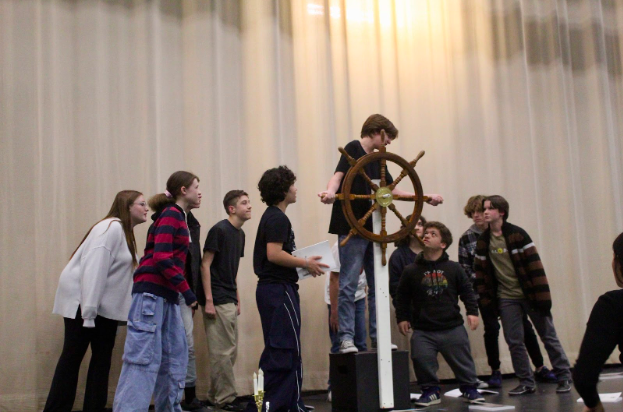Thursday, Feb. 8, agricultural biology students visited the San Marcos FFA farm in Twin Oaks to visit the livestock. Iris, the farm’s breeding goat, greets them in the barn—pregnant with baby goats. Little did the students know, Iris would give birth to three goats later that evening; providing the farm with its first spring animals, and students with a new opportunity in their agricultural education.
From filmmaking to woodshop, various career technical education courses, or CTE, are available at San Marcos High School. Among these are agricultural and animal science, which house one of the largest organizations in the youth farming community. The Future Farmers of America, or the FFA was established in 1928 by Henry Groseclose, Walter Stephenson Newman, Henry Sanders, and Edmund Magill with the intention of informing students on careers in livestock, poultry, floral, food processing, and farming through hands-on teaching.
“The main difference between ag classes and regular science classes is the amount of hands-on experience you get with animals and plants,” said senior FFA officer Mira Langin. Through the agricultural courses, students explore alternative teaching styles that can be beneficial to college preparation and career technical futures.
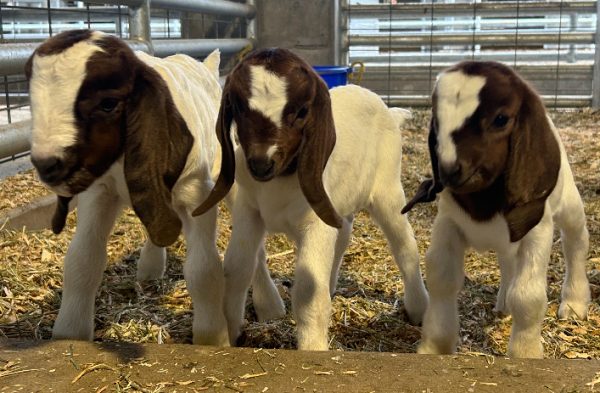
“I teach floral design and ag bio. I love flowers and I have a lot of girls who have their own bouquet-making pages. It’s really exciting when [students] show me what they’re doing. Some of them hopefully want to run a floral business one day,” said biology teacher Stephanie Navarrete.
Navarette is a first-year teacher and her interest in the FFA began when she was in high school. She got an education in agriculture through the FFA and was inspired by her Hispanic colleagues. As a Hispanic student herself, she wanted to educate all students despite their backgrounds. She was a chapter officer during high school and went to Chico State University to continue her studies. Currently, Navarette is very involved in teaching students the ins and outs of agricultural Career Technical Education.
“I love teaching it all…With ag bio, I love teaching phenomena,” said Navarrete. Her freshmen students experimented with phenomena in a different way. They utilized mimosa pudica plants and observed their reaction to touch. That experiment was just one of the dozens of hands-on opportunities students had.
In addition to the academically required and exploratory activities students get to participate in, they’re also expanding upon their leadership skills. All agricultural science courses are setting students up for success and teaching them valuable skills that they’ll use beyond their high school and college experiences.
Langin said, “When you’re a leader of 600 people, you have to step up to the task of being responsible.”
She mentioned that her leadership skills have improved greatly due to the FFA. One of the primary reasons these classes are available at SMHS is because it can strengthen any student’s social and leadership abilities. Agricultural biology, chemistry, and physics on top of floral design, veterinary science, and animal science are offered to students; allowing them to participate in FFA related activities regardless of being an officer or not.
Nick Damian, a sophomore agricultural chemistry student said,“I participated in a lot of events and different competitions for FFA. It’s been really fun being in this class and I really like agriculture.”
As Damian mentioned, students have access to competing in FFA opening and closing competitions, FFA creed reciting events, animal shows, livestock judging, and various other off-campus activities. They’re critical thinking, leadership, and service skills are benefitting from these public speaking and animal raising events sponsored by San Marcos High School’s FFA.
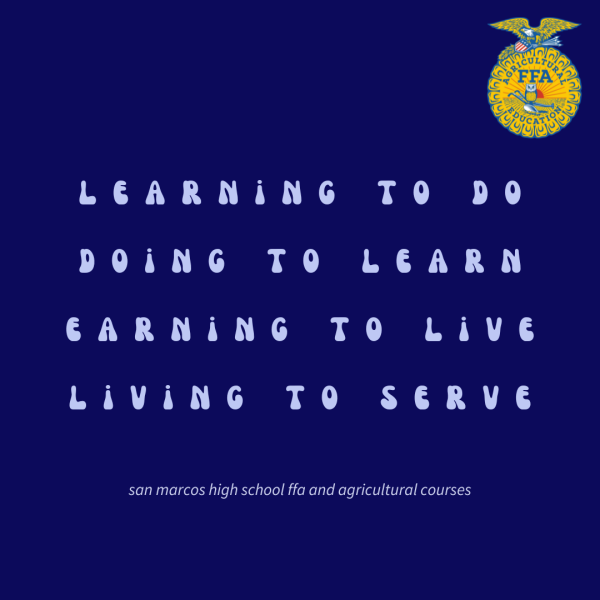
Not only are he and his peers receiving on campus agricultural education in a classroom setting, but they’re profiting from hands-on learning experiences at the Twin Oaks FFA farm. Sophomores in his chemistry class have been able to bathe, immunity shot, and interact with animals during their monthly trips to the farm. Teachers mention that going to the farm is their favorite aspect of teaching these classes.
“I love when we go to the farm because students who are quiet really come out. I think ‘I didn’t know they had all this energy’ and they’re really passionate about it too,” Navarrete said.
Even students who aren’t necessarily pursuing agriculture in their future or as a career, recommend these courses. The experience and being a part of something larger than themselves is what they enjoy.
“I can’t say that I’m going into an agricultural field, but I do think I’ve learned a lot of leadership skills throughout the events I’ve been to and the stuff I learn in class. I definitely think that’ll help me out in my future with communicating with new people,” said Damian.
Iris and her three new additions to the farm will be of great significance to the growth and expansion of agricultural education at San Marcos High School. The FFA, animal science, and agricultural science classes are a positive influence on the coaching and instruction in the district, and are strides in the right direction towards a bright farming future.
